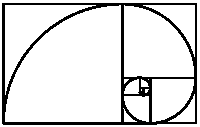
Math in the Middle Institute Partnership
Department of Teaching, Learning, and Teacher Education: Master of Arts in Teaching, Summative Projects
The requirements for the written product of teachers' action research projects differ for participants seeking MA and MAT degrees.
For those seeking MA degrees, the product of a teacher's action research is called a summative project and this, along with a portfolio, are the requirements of the MA master's degree. The summative project for an MA degree is expected to be more in depth than an action research report for an MAT degree with regard to the data analysis, discussion of findings, and conclusions sections and is, therefore, typically longer in length than MAT action research reports.
2009
Problems With Problem Solving: Assessing Written Solutions of Mathematical Habits of Mind Problems, Ali Arndt
Strengthening Student Understanding by Implementing Rubrics to Provide Effective Feedback, Mindy Fichtner
Oral Presentations: Exploring Presentations of Homework Problems as an Alternative Assessment Tool, Michael Ford
Reviewing, Rethinking and Revising Homework Expectations in a Seventh Grade Math Class, Marilyn Hein
Improving Problem Solving by Improving Reading Skills, Shayne Hite
Creating Meaningful Homework and Implementing Homework Presentations to Aid in Mathematics Instruction, Gretchen Long
Forgetting to Remember: Formative Assessment in Sixth Grade Mathematics Classroom, Corie Lubash
Project Based Instruction in a Sixth Grade Mathematics Classroom: A Case of Roller Coasters, Lori L. Pierce
Mathematical Communication and Achievement Through Journal Writing, Cathy Schultz
Reading Mathematics, Geri Steinbrink
2008
Vocabulary Instruction as a Tool for Helping Students of Diverse Backgrounds and Ability Levels to Understand Mathematical Concepts, Joan Brethouwer
Summarization in Math Class, Scott Eckman
Improving Communication about Mathematics through Vocabulary and Writing, Kelly Georgius
Attitudes, Confidence, and Achievement of High-Ability Fifth Grade Math Students, Bradley D. Piper
A Study of the Summarization of Word Problems, Tara Schwanebeck
Five Processes of Mathematical Thinking, Toni Scusa
Writing Relevant Word Problems: Seeking to Increase Student Mathematical Achievement, Amanda Stark
Mathematical Communication Within a Daily Small-Group Learning Environment, Amy L. Wilson
2007
It Is Not Just the Solution Anymore, Carol Brown
Writing in the Mathematics Classroom: Does It Have an Effect on Students’ Mathematical Reasoning?, Rachel Bunnett
A Study of the Role of Mnemonics in Learning Mathematics, Kathy DeLashmutt
The Use of Think-Aloud Strategies to Solve Word Problems, Lisa M. Henjes
A Study of Written Communication: Showing Your Steps, Megan Kelly
Connections Between Communication and Math Abilities, Rachelle Mayo
Using Cooperative Learning to Promote a Problem-Solving Classroom, Amy Nebesniak
Building Math Esteem in Fifth Grade Students, Karen Schur
Here is the Plan: So What is the Question?, Dot Snesrud
An Investigation into Careless Errors Made by 7th Grade Mathematics Students, Andrea Wiens
Increasing Student Confidence and Knowledge through Student Presentations, Lori Ziemba
2006
Student Problem Solving, Michael A. Cobelens
The Role of Habits-of-Mind Problems, Student Self-Assessments and Self Reflections In a 6th Grade Math Class, Garold J. Furse
Discourse and Cooperative Learning in the Math Classroom, Karen Hillen
Factors that Influence Mathematics Attitudes, Natalie Jenkins
An In-Depth Study of Student Engagement, Laura Parn
Improving Mathematics Problem Solving Through Written Explanations, Janet Schlattmann
Math Anxiety: What Can Teachers Do to Help Their Students Overcome the Feeling?, Danielle Swanson

